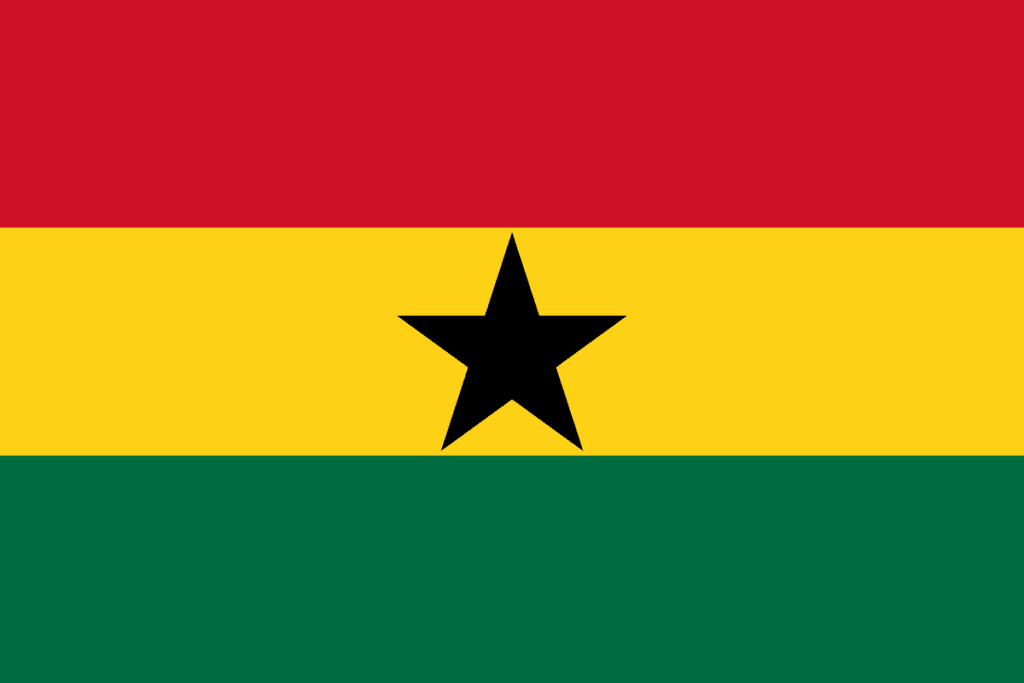Ghana is a country of 28.21 million people and many native groups, such as:
the Akans in the centre and south of the country
the Ga and Adangbe in and around the East of Accra
the Guan peoples in the rain forest
the Dagombas, Mamprusi and related peoples in the North
the Gurunsi languages speaking peoples in the far North
the Gonjas in the Northern Region
English is the official language, but the local Twi of the Ashantis, the Fante language, Frafra, Dangme, Ga, Dagbani, Mampruli, Gonja and Ewe also have an official status and are taught in schools as indigenous (local) languages in the respective areas where they are predominant.
Women in pre-modern society were seen as bearers of children, retailers of fish, and farmers. Traditionally, women’s childbearing abilities were perceived as a way for lineage ancestors to be reborn. In pre-colonial times, polygamy was encouraged, especially by wealthy men.
In patrilineal societies, dowry received from marrying off daughters was traditionally seen as an acknowledgement to parents for raising their daughters well. In the last couples of decades, female gender roles have evolved tremendously.
Ghanaian women now account for 43.1% of the working class in Ghana. Females have climbed to the upper leadership echelons of politics, career, business, and all other sectors. Notable political personalities include Joyce Bamford-Addo (Speaker of the 5th Session of the Parliament), Georgina Theodora Wood (Chief Justice) as well as multiple past and current political office holders.
The Akans
The Akan people are one of the few matrilineal societies in West Africa. The matrilineal system of the Akan continues to be economically and politically important. Each lineage controlled the land farmed by its members, functioned as a religious unit in the veneration of its ancestors, supervised marriages, and settled internal disputes among its members.
Akan kings are renowned for their splendour and wealth. Celebration of the Akan kings lives on in the tradition of the Golden Stool. The Akan are noted for their expertise in several forms of craftwork, particularly their weaving, wood carving, ceramics, fertility dolls, and kente cloth).
The various Akan groups speak various dialects of the Akan language, a language rich in proverbs, and the use of proverbs is considered to be a sign of wisdom. Euphemisms are also very common, especially concerning events connected with death.
The coastal Akans are said to have been the first to have relations with Europeans during the “Scramble for Africa”. As a result of this long association, these groups absorbed aspects of British culture and language. For example, it became customary among these peoples to adopt British surnames. The coastal Akans live predominantly in the Central Region and Western Region of Akanland.
Ga-Adangbe
The Ga-Adangbe people or simply Ga people (named for the common proto-Ga-Adangbe ancestral language) inhabit the Greater Accra Region. The Ga-Adangde have different but common languages, Ga, Krobo, Sh3, Osudoko, Shai, Gbugblaa, and Ada, Ningo to mention a few. The Adangbe inhabit the eastern plain, while the Ga groups occupy the western portions of the Accra coastlands. Both languages are derived from a common root language, and modern Ga and Adangbe languages are still similar today.
Despite the archaeological evidence that Ga-Adangbe’s relied on millet and yam cultivation, the modern Ga-Adangbe reside in what used to be fishing communities, and more than 75 per cent of the Ga-Adangbe live in urban centres. The presence of major industrial, commercial, and governmental institutions in the city and towns, as well as increasing migration of other people into the area, has not prevented the Ga people from maintaining aspects of their traditional culture, even though Twi is an important immigrant language in their lands.
The Dagombas
The Dagomba speak the Dagbani language (Dagbane). The Dagomba reside in Dagbon (Northern Ghana). For centuries, the area inhabited by Dagomba peoples has been the scene of movements of people engaged in conquest, expansion, and north-south and east-west trade. Many terms from Arabic, Hausa and Dyula are seen in the Dagbani language, due to the importance of Trans-Saharan trade and West African trade and the historic impact that the Islamic religion has had in the area.
Ewé
The Ewe people occupy southeastern Ghana and parts of neighbouring Togo and Benin. The Ewe follow a patrilineal structure, meaning that the founder of a community becomes chief and is usually succeeded by his paternal relatives. Ewe religion is organized around a creator or deity, Mawu, and over 600 other deities. The Ewe are more traditionally inclined in terms of religion and belief. Many village celebrations and ceremonies take place in honour of one or more deities.
Coastal Ewe depend on the fishing trade, while inland Ewe are usually farmers and keep livestock. The local variations in economic activities have led to craft specialization. The Ewe also weave Kente cloth, often in geometrical patterns and symbolic designs that have been handed down through the ages.
To be continued…
SOURCE: https://en.m.wikipedia.org/wiki/Culture_of_Ghana


